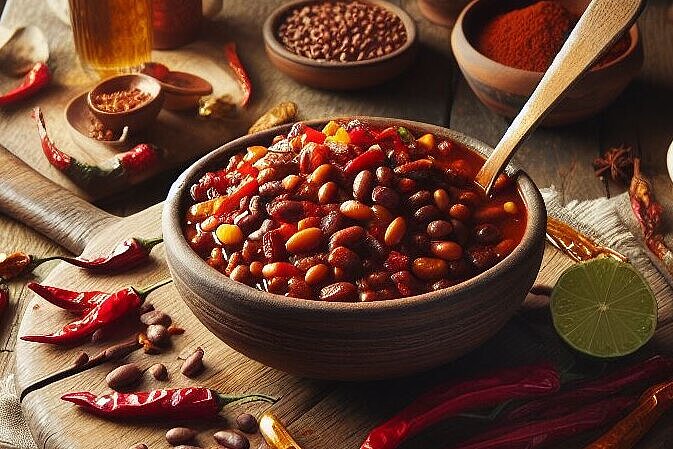Stew

In the cold season or simply as a hearty dish for in between meals, stew enjoys great popularity among us humans. But what about this traditional meal in our dogs' diet? Can a well-prepared stew also be a healthy supplement for our faithful companions, or does it harbor potential dangers that dog owners should be aware of? In this article, we look at the concept of stew as part of a dog's diet, examine its pros and cons and give tips on how to prepare a dog-friendly stew.
What is stew?
Stew is a type of dish that consists of a variety of ingredients cooked together in a pot. Typically, a stew includes a combination of meat, vegetables and sometimes legumes or grains. The ingredients are cooked slowly until they are tender and the flavors have fully developed. For humans, stew provides a nutritious and warming meal, but transferring this concept to a dog's diet requires careful selection and preparation of ingredients.
Benefits: Stew in dog nutrition
A varied source of nutrients
A well-considered stew can provide a wide range of essential nutrients. By combining different vegetables, meats and possibly safe grains, a stew can provide vitamins, minerals, proteins and fats that are important for a dog's health.
Hydration
Stews have a high water content, which makes them a good source of hydration, especially for dogs that don't drink enough or where there is an increased need due to illness.
Palatability
The slow cooking time and mixture of different ingredients in a stew can result in a particularly tasty dish that can satisfy even picky eaters.
Disadvantages and risks: What to look out for
Unsuitable ingredients
Not all foods that are safe for humans are also suitable for dogs. Onions, garlic, spicy foods and certain vegetables such as grapes or raisins are poisonous to dogs and must be avoided.
Too high a fat content
Some stews, especially those with a high meat content, can have too high a fat content, which can lead to digestive problems or obesity in dogs in the long term.
Lack of specificity
While stews can provide a variety of nutrients, they may not be tailored to a dog's specific nutritional needs. Dogs at different stages of life, with certain health conditions or activity levels require customized nutrition plans.
Stew can be a delicious and nutritious addition to your dog's diet if prepared correctly. Choosing safe, dog-friendly ingredients and avoiding foods that are harmful to dogs is key. Stews should be considered as part of a balanced diet and not used as the sole source of nutrition. It is important to monitor portion sizes and adjust the stew according to your dog's individual needs. If you are unsure about the appropriate diet for your dog or introducing new foods, it is always advisable to consult a vet. With the right preparation, a dog-friendly stew can make a welcome change to your four-legged friend's diet.
If you notice any signs of hypersensitivity or poisoning in your dog, you should see your vet immediately. We are not a substitute for a vet, but we try to be as accurate as possible. Every dog reacts differently and we recommend you get a second opinion or consult your vet if in doubt.
Stay healthy and take good care of your four-legged friend!😊
Similar to Stew
Jambalaya is a versatile, one-pot dish that has its origins in American Southern cuisine. There are two main varieties: the Creole or "red" jambalaya, which contains tomatoes, and the Cajun...
Bolognese is a typical sauce from the Emilia-Romagna region in northern Italy. It is usually served with pasta such as spaghetti or tagliatelle and sprinkled with Parmesan cheese. The ingredients of...
A taco traditionally consists of a soft or hard corn or wheat tortilla that is rolled or folded around a filling. Fillings vary widely and can include beef, chicken, seafood, vegetables and various...
Chili con carne, literally translated as "chili with meat", is a spicy dish that has its origins in Tex-Mex cuisine. It consists mainly of chili peppers, meat (typically beef), tomatoes and various...



